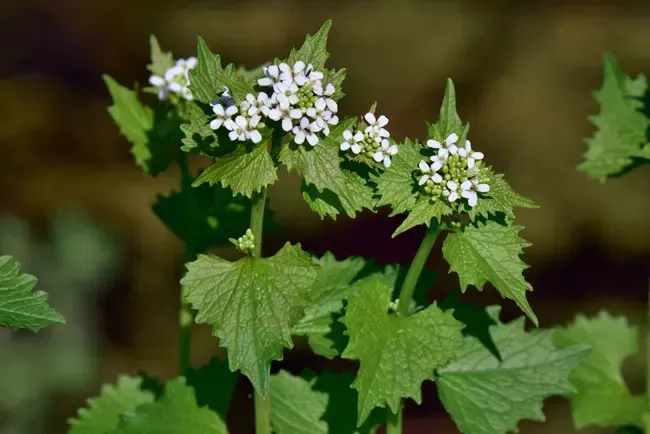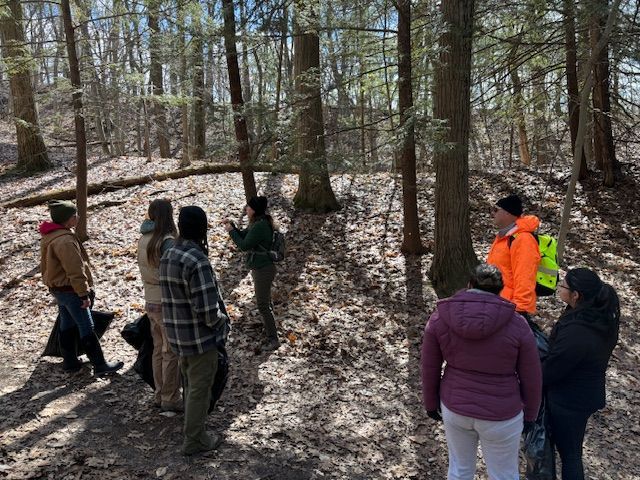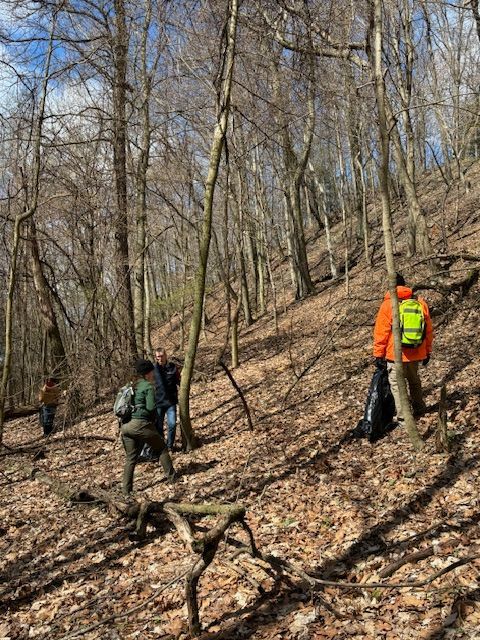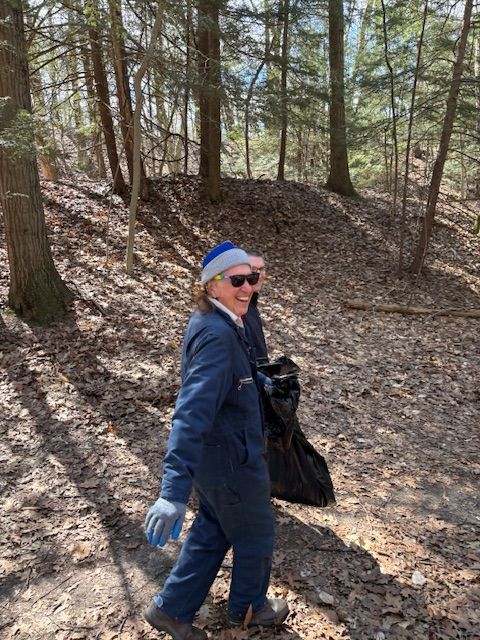On the Ground: Garlic Mustard Pull at Saugatuck Dunes State Park
On Saturday, April 20, 2024, On the Ground partnered with the Michigan Department of Natural Resources (DNR) Parks and Recreation Division to host a garlic mustard removal day at Saugatuck Dunes State Park. Although it was a windy day, 24 volunteers came out to help eradicate this plant and improve habitat for Michigan's wildlife.
Garlic Mustard 101
Garlic mustard is an invasive plant, which means that it is not naturally found here in Michigan and has invaded the ecosystem. It spreads rapidly and can grow in dense patches, shading native plants and preventing them from growing. This plant is also allelopathic, meaning it sends out chemicals through its root system that kill any surrounding plants, native or not. It can become a big problem if it is not removed and eradicated properly. Garlic mustard is found throughout the state of Michigan, however consistent management can help keep this species in check.

Volunteers Remove This Invasive
Volunteers concentrated on a woodland area in Saugatuck Dunes State Park where known pockets of garlic mustard are present. Each volunteer carefully combed the forest floor looking for this invasive plant and properly disposed of it in a trash bag. As with any plant, garlic mustard needs to be pulled at the roots to ensure the entire plant comes out of the ground. Volunteers also enjoyed a brief presentation by Emily Leslie from the Michigan DNR on hemlock woolly adelgid, which is currently present and being treated at Saugatuck Dunes State Park. In total, volunteers directly improved 15 acres of wildlife habitat through this project.

The post On the Ground: Garlic Mustard Pull at Saugatuck Dunes State Park appeared first on Michigan United Conservation Clubs.
Recent Posts





